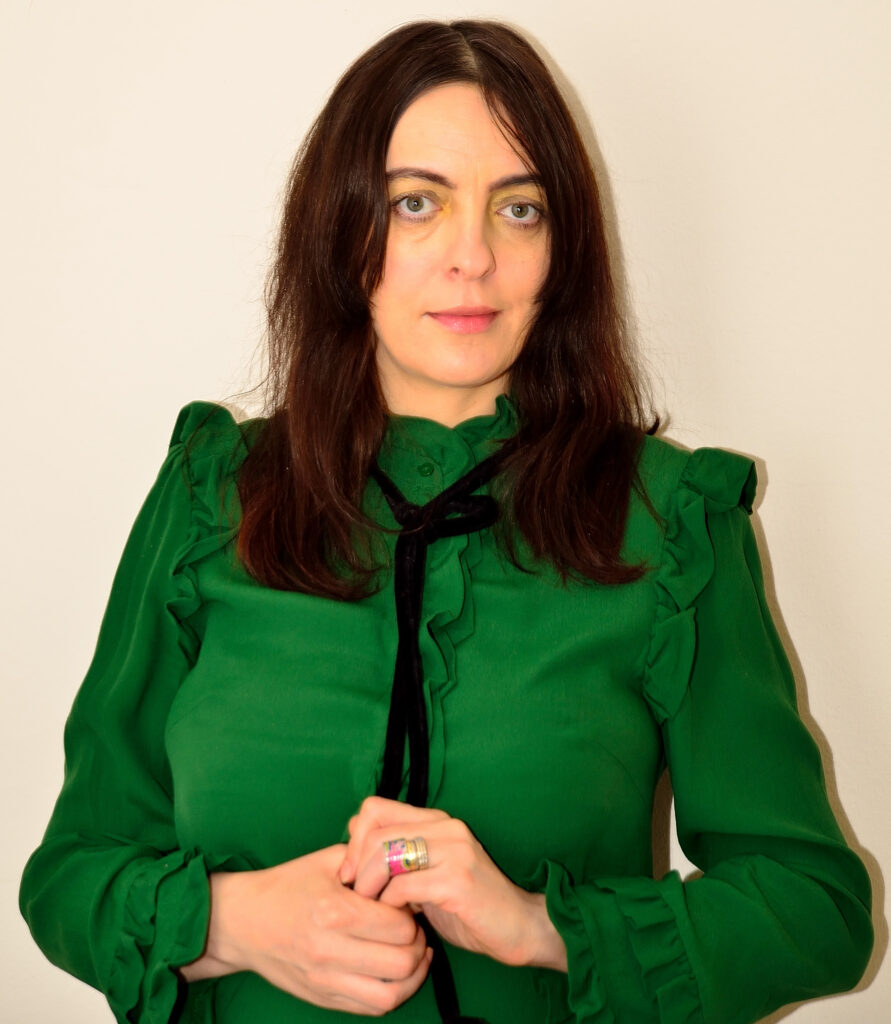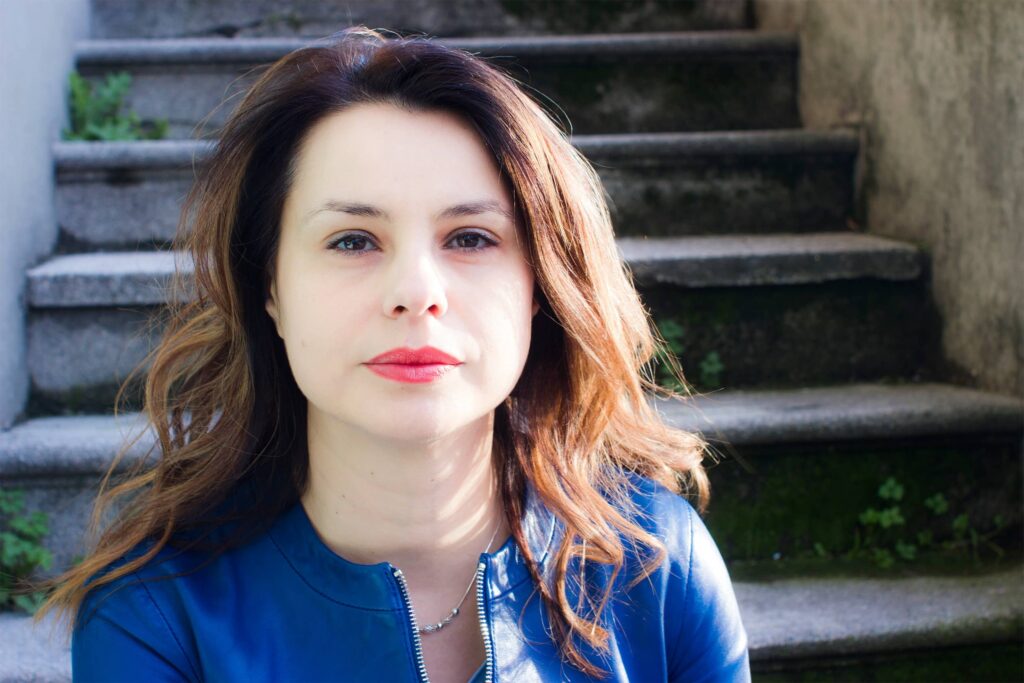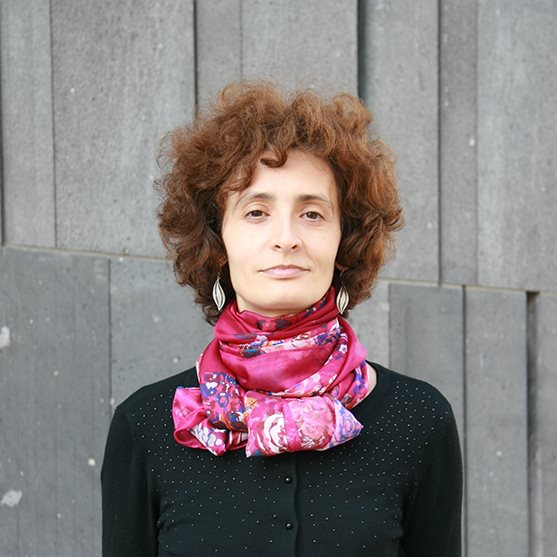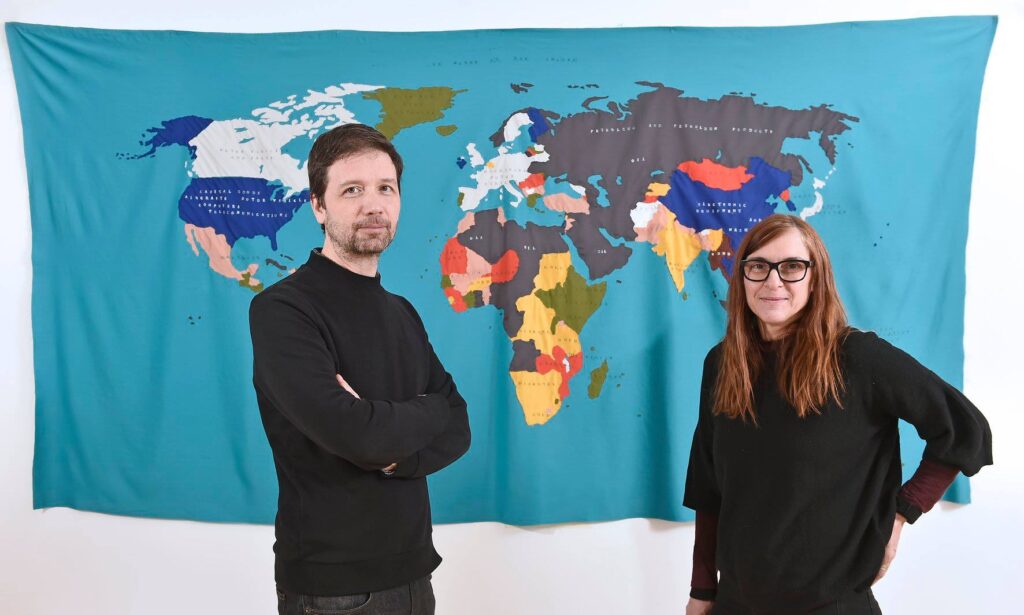Guest lecturers in Bucharest

Maria Alina Asavei is an Associate Professor and Senior Researcher in the Department of Russian and East European Studies, Institute of International Studies and an independent curator of contemporary art. She is the recipient of a National Endowment for the Humanities grant in the US at Fordham University (2018-2019). Her recent publications include, among others, the monographs Aesthetics, Disinterestedness and Effectiveness in Political Art (Rowman & Littlefield, 2018) and Art, Religion and Resistance in (Post-)Communist Romania: Nostalgia for Paradise Lost (Palgrave Macmillan, 2020) and several research papers that revolve around art, politics, and religion nexus from a variety of perspectives.

Gianina Cărbunariu – Director playwright, based in Bucharest. Manager of Teatrul Tineretului and curator of the Theatre Festival in Piatra Neamț, Romania, since 2017. She works in the Romanian independent scene and also collaborates with state theatre such as National Theatre in Sibiu, Mic Theatre or Odeon Theatre in Bucharest. As a director and playwright she also collaborated with Centro Dramatico Nacional Madrid, Kammerspiele Theatre in Munich, Emilia Romagna Teatro from Bologna, Royal Dramatic Theatre in Stockholm, Royal Court London, Schaubuhne Berlin, Volkstheater Vienna. Her performances were presented in the official selection of Avignon Festival (2014, Solitaritate), Wiener Festwochen 2016, Biennale of New Plays from Wiesbaden, TransAmerique Festival from Montreal, International Theatre Festival from Liege, New Drama Festival in Moscow, Dialog in Wroclav, Kontakt Festival in Torun, Konfrontacje Festival in Lublin, New Drama in Budapest, LIFT festival in London, Mladi Levi Festival in Liubliana, Divadelna Nitra, HAU in Berlin, Trafo Budapest, National Theatre of Bruxelles etc. Her plays were translated and staged by other directors in Europe, SUA, Canada, Japan and published by Actes Sud in France, Oberon Books London (the play Kebab) , Martin E. Segal Theatre Publications, Theater der Zeit. The performances of Gianina Cărbunariu start from research through interviews or in different archives and are developed together with the artistic team in the rehearsals. The fictional scenario and the performance are built in the same time in this meeting of different perspectives on the realities of nowadays or on topics concerning the recent past.

Dan Perjovschi lives and works in Bucharest and Sibiu Romania. His solo exhibitions include: Documenta 15 (2021) “Drawing the World”, Ludwig Forum for International Art Aachen (2021), The Prize Drawing“ Kunsthalle Hamburg (2016), “Unframed” Kiasma, Helsinki (2013); “Not over” MACRO, Rome (2011); “What Happen to US?” MoMA, New York (2007); “I am not Exotic I am Exhausted” Kunsthalle Basel (2007), “The Room Drawing” Tate Modern, London (2006) and “Naked Drawings” Ludwig Museum, Cologne (2005). He has participated in numerous group shows including Documenta 15 (2022);“…on bread, wine, cars security and peace” Kunsthalle Wien (2020) The Jakarta Biennial (2015); the Sydney Biennial (2008); “The Magelanic Cloud” Cetre Pompidou (2007); the Venice Biennale (2007) and the 9th Istanbul Biennial (2005). Perjovschi received George Maciunas Prize in 2004, The European Cultural Foundation Prize in 2012 (with Lia Perjovschi) and Rosa Schapire Prize/Kunsthalle Hamburg in 2016.

Alina Șerban is an independent curator, scholar and editor. Her research focuses on post-war experimental art and the changing status of the architectural image in the era, alongside the complex questions involving rewriting East European art history. She is interested in the exhibition practices of the 1960s and 1970s. In 2008, she created remarkable monographic exhibitions on Ana Lupaș and Geta Brătescu at the Galerie im Taxispalais in Innsbruck (in collaboration with Silvia Eiblmayr), and, in 2009, curated the Romanian Pavilion at the 53rd Venice Biennale. Recently she curated a landmark exhibition entitled 24 Arguments: Early Encounters in Romanian Neo-avant-garde 1969–1971 at the National Museum of Art of Romania in Bucharest (2019). She also (co)curated a series of exhibitions that offered introspection on the complex interrelations between art, architecture, collective culture, and the dynamic of public spaces in Romania during the 1960s and 1970s, and also after the 1990s, among them Enchanting Views: Romanian Black Sea Tourism Planning and Architecture of the 1960s and 1970s (Sala Dalles, National Museum of Contemporary Art, Bucharest, 2014). In 2022 she was awarded the Igor Zabel Award for Culture and Theory.
Șerban has accumulated valuable experience founding self-managed organizations over many years, the most recent being IP –The Institute of the Present founded in 2017 in Bucharest (with Ștefania Ferchedău). IP is a research and artist resource platform that has contributed to a major shift in the understanding of visual and performing arts in Romania within the local, regional, and international contexts. Publishing and editorial activities are another important aspect of Șerban’s practice. In 2013, she founded the independent publishing program P+4 Publications in Bucharest. Dedicated to Romanian contemporary photography, art, and architecture, the program explores the book medium as a point of encounter between theoretical research, graphic design experiment, and the ideas and subjects tackled by artists in their practice.
Guest artists in Bucharest

Mona Vatamanu & Florin Tudor
Romanian artists Mona Vatamanu and Florin Tudor have worked together since 2000. Their work interprets contemporary post-communist conditions and engages critically with issues such as collective memory and amnesia. Mona Vătămanu and Florin Tudor live and work in Bucharest. Solo exhibitions (selection): Omnia Communia Deserta, La Loge, Brussels (2020); Prăpădenia terraântului, Salonul de proiecte, Bucharest (2016); All that is solid melts into air, Extra City Kunsthal, Antwerp (2013); Powerlessness a Situation. Revolutie, Frankfurter Kunstverein, Frankfurt (2013); The order of things, daadgalerie, Berlin (2012); All Power to the Imagination!, Secession, Vienna (2009). Their work has been included in group exhibitions such as Kathmandu Triennale 2077, Patan Museum, Kathmandu (2022); Baltic Triennial 14: The Endless Frontier, CAC Contemporary Art Centre, Vilnius (2021); A Biography of Daphne, ACCA Australian Centre for Contemporary Art, Melbourne (2021); Borderlines, Talbot Rice Gallery, Edinburgh (2019), The Street. Where the World Is Made, Maxxi Museo Nazionale delle arti del XXI secolo, Rome (2019); Windswept: Art Encounters Biennial, Timișoara (2019); Gaudiopolis – Attempts at a Joyful Society, GfZK Galerie für Zeitgenossische Kunst Leipzig (2018); Social Factory, 10th Shanghai Biennale, Power Station of Art, Shanghai (2014); A History, Centre Pompidou, Paris (2014); Something in Space Escapes Our Attempts at Surveying, Württembergischer Kunstverein Stuttgart (2014); Untitled, 12th Istanbul Biennial (2011); Call the Witness, Roma Pavilion Collateral Event, 54th Venice Biennale, Venice (2011); Over the Counter, Mucsarnok Kunsthalle, Budapest (2010); Shockworkers of the Mobile Image, 1st Ural Industrial Biennial, Yekaterinburg (2010); Art as Gift, Periferic Biennial 8, Iasi (2008); 5th Berlin Biennial, When Things Cast No Shadow, KW Institute for Contemporary Art, Berlin (2008). In 2011 they were DAAD Berlin fellows in the Berliner Kunstlerprogram.

Alexandru Solomon – After graduating from the Cinematography Department of the Film School in Bucharest in 1991, Alexandru Solomon started working as an assistant, then cameraman and director of photography on fiction films. He made his debut with the film “Look Forward in Anger” (directed by Nicolae Mărgineanu). In parallel, in the early 90’s, the film-maker collaborated with artists like Radu Igaszag and Geta Brătescu on several experimental films. Some of them, like “Earthcake” or “Cocktail Automatic”, are present in the collections of museums in Europe and North America. Solomon’s interest in multimedia, which developed during an internship at the University of California in San Diego (1996), has materialized in the design and production of several interactive CD-ROMs on cultural themes with the Visual Arts Foundation (FAV). Gradually, he migrated to documentary film, starting with several films about the Romanian interwar avant-garde, made with Radu Igazsag. His first feature film was “The Great Communist Robbery” (2004), followed by “Kapitalism – Our Secret Recipe”, “Cold Waves” and “Tarzan’s Testicles”, which were shown in over 30 festivals around the world and were released in cinemas. The film-maker has co-produced several documentaries such as “Farewell, Comrades!” (directed by Andrei Nekrasov for Arte), “Trading Germans” (directed by Răzvan Georgescu for MDR) or “Whose Dog Am I?” (directed by Robert Lakatos). In 2016 Alexandru Solomon published the monograph “Representations of Memory in Documentary Film” at Polirom, a book based on his experiences and practices in this field. He has been teaching at the National University of Arts in Bucharest since 2010 in the Photo-Video department. From 2009 to 2018 he was the artistic director of One World Romania Documentary and Human Rights Festival and, since 2010, he is the president of the association with the same name.
